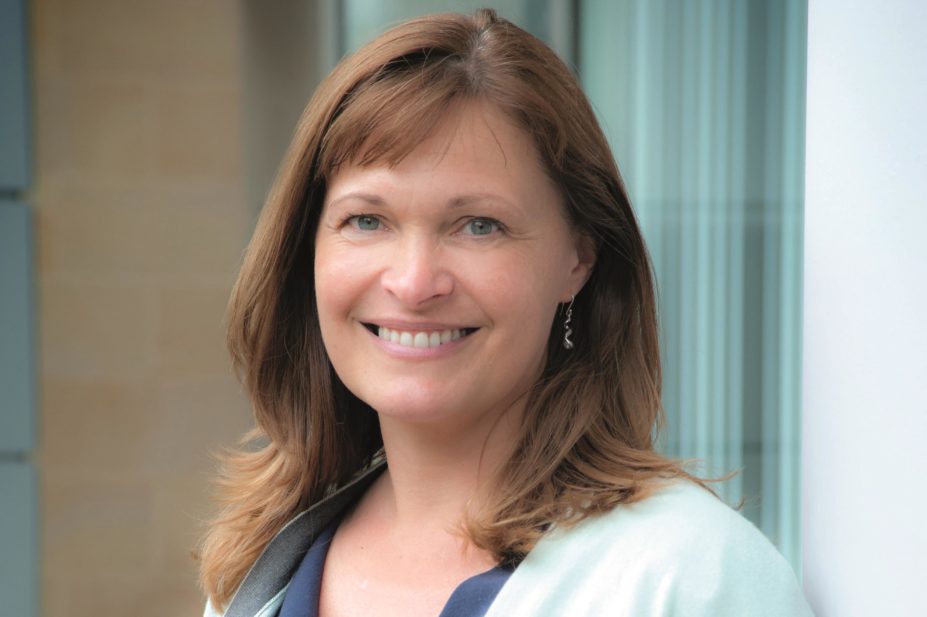
RPS Scotland
On 17 May 2016, the Royal Pharmaceutical Society (RPS) of Scotland and NHS Education for Scotland (NES) held a joint pharmacy seminar ‘One for all and all for one – shaping pharmacy practice for the future’. This was just one of many projects being developed in collaboration by the two organisations to support the professional development of pharmacists across Scotland. Here, Ailsa Power, vice chair of the RPS Scottish Pharmacy Board and associate postgraduate pharmacy dean at NES, talks about how the collaboration came about three years ago.
What is the primary role of NHS Education for Scotland, how does it complement the work of Royal Pharmaceutical Society Scotland and vice versa?
The role of the Royal Pharmaceutical Society (RPS) is to support its members to improve health outcomes for patients, through professional development and support alongside a commitment to improving patient care and safety through developing professional practice. Education and training body NHS Education for Scotland (NES) is a special health board within NHS Scotland, with responsibility for developing and delivering education and training to the healthcare workforce in Scotland. With a Scotland-wide role in postgraduate and continuing professional development, NES also collaborates with regulatory bodies and other organisations concerned with the development of the healthcare workforce, such as the RPS. Therefore, there is lots of potential for collaboration between the two bodies.
How did the collaboration come about?
Scotland is a small country with around 4,500 pharmacists. Approximately three years ago, NES and RPS decided that actively working together, rather than competing, was the best way for us to serve the interests of pharmacists in Scotland.
What past projects have NES and RPS Scotland collaborated on?
In 2015, NES and RPS Scotland collaborated on a trilogy of events. In February, we had the NES Prescription for Excellence and Education Conference where we considered the educational support required to deliver the aspirations of the government’s Prescription for Excellence strategy. In May, RPS Scotland and NES jointly hosted ‘Prescription for excellence, it’s happening now’ where Scottish health boards showcased the work they were doing to share best practice and allow cross-fertilisation of ideas. Then, in August, RPS Scotland’s national seminar ‘Pharmacy working together to advance quality in practice’, continued this journey and allowed for further discussion.
On 17 May 2016, NES and RPS Scotland held a joint pharmacy seminar ‘One for all and all for one – shaping pharmacy practice for the future’ – was it a success?
The event was very popular – it exceeded our expectations. The idea was to bring front line pharmacy practitioners together to share ideas, best practice and explore ways of working together, as well as to allow individuals to identify their own personal development needs.
Delegates participated in workshops specific to either community, primary care or hospital and considered the future for patient-facing pharmacists and pharmacist prescribers in improving the quality and safety of patient care. Further workshops focused on managing patients; using chronic condition care bundles to improve care and quality; pulling together and transforming out-of-hours and urgent care; and sustaining and developing pharmacy services. The feedback from delegates was extremely positive.
Deborah Stafford joined RPS Scotland in 2014 to deliver a joint secondment with NES, focusing on vocational training within the hospital sector – what did she find?
Debbie carried out a detailed mapping against the RPS Foundation framework and found that the current NES foundation hospital vocational training was comprehensive but that there were some slight gaps in the training relating to aspects of the RPS Foundation Training which are in the process of being addressed.
Do NES/RPS Scotland have any further plans to do this kind of study in other sectors?
Yes, we are working together again and have recruited Heather Harrison from NHS Greater Glasgow & Clyde Health Board, who will be looking at the possibility of vocational training in community pharmacy in Scotland.
NES/RPS Scotland also work together to support preregistration students – how do you do this?
The majority of preregistration trainees in Scotland are within the NES-funded PreRegistration Pharmacist Scheme (PRPS) with NES being responsible for the national recruitment, training and quality management of the scheme. NES supports the training of all preregistration trainees in Scotland by providing monthly tutorials, tutor training and appraisals, and by dealing with governance issues such as premises visits.
NES invites the RPS to participate in trainee induction events. At these events, RPS Scotland talks to the trainees about professionalism and use it as an opportunity to show what professional support RPS can offer throughout their career and encourage trainees to join the Society.
In general, NES and RPS Scotland work together to avoid duplication. In particular, NES has included some professional topics in its tutorial programme, such as polypharmacy – and colleagues from RPS Scotland have attended the tutorials to deliver presentations and support the discussion. RPS Scotland has also recorded webinars on monitored dosage systems (MDS) and professionalism, which are available to the trainees.
NES is now working with the RPS in the delivery of our mock registration assessment with the RPS providing the question papers and assisting with the invigilation.
What have NES and RPS Scotland got planned for the rest of 2016/2017?
As part of the ongoing Medicines Act rebalancing work and the need to improve error reporting, the RPS was asked to take the lead in developing quality road shows. The RPS has been working alongside NES, Healthcare Improvement Scotland and Community Pharmacy Scotland to develop quality roadshows and supporting materials to promote the safer use of medicines.
Also this year, NES preregistration trainees will have the opportunity to take part in a national piece of research during their training practices. We are hoping to link this initiative to the RPS Research Ready campaign to encourage research in the community.

